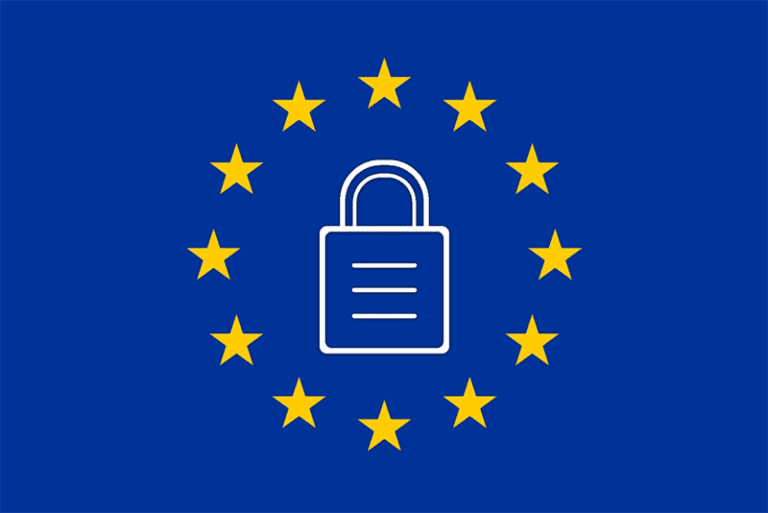We’re probably living in the golden era of the information Big Bang where the data we generate doubles every two years.
Table of Contents
ToggleShocked?
Today, with the increasing use of smartphones and devices that collect and transmit data over a high-speed global network, we’re currently generating quintillions of bytes of data every day.
That’s a huge amount of data!
With artificial intelligence (AI) witnessing exponential growth, the rate of data growth is likely to be much faster than anticipation. This results in more data being collected. For AI startups and businesses that use AI, data is king because they use data to train AI models.
That’s why data (particularly personal data) is under the constant scrutiny of lawmakers. It has given birth to many data privacy laws like Virginia’s Consumer Data Protection Act (CDPA).
Today, with growing privacy concerns and an increasing number of data breaches occurring, companies that focus on CDPA compliance are the ones that sail their boat near the shore.
In this article, we discuss what CDPA is, how CDPA and AI are related, and explore some benefits of CDPA compliance.
Ready?
Let’s start!
What is CDPA?
First, it was GDPR, then came the CCPA and CPRA, and now the world has been bombarded with yet another data privacy acronym – CDPA.
Unlike its already implemented predecessors, CDPA comes into effect from January 1, 2023. This privacy law provides consumers full rights over their data and privacy. With CDPA, customers have full control over what businesses do with their personal data. It can include how a business can collect, share and save your information.
These regulations apply primarily to companies that sell their goods and services to residents in Virginia. Interestingly, CDPA provides customers with five personal data rights:
- Right to opt-out from sales of their personal data
- Right to delete personal data
- Right to data portability
- Right to opt-out of behavioral advertising
- Right to access
The law demands that every company follow a transparent approach when enabling customers to opt-out of targeted advertising they don’t want to be a part of. Though CDPA doesn’t explicitly state anything about AI or machine learning, it gives importance to automated processing of personal data and automated decision making—two crucial aspects of AI and ML.
This means that wherever your AI model or program uses personal data, it falls under CDPA regulation. It also means that businesses that use personal data to train, test, and deploy AI systems must be careful lest they fall into the data security and privacy trap.
Failure to comply with CDPA can attract fines up to $7,500 per violation. So, by staying updated to ever-changing regulations, businesses can prevent data breaches and avoid hefty lawsuits.
With the cost of non-compliance being as high as 2.71 times the cost of compliance, businesses that adhere to CDPA are the ones that remain successful and in business.
CDPA and AI – Two sides of a single coin
Interestingly, privacy risk from AI doesn’t stem only from the mass personal collection of data. Data leaks can occur from deep neural network models that power most of AI’s models.
It’s wrong to say that data vulnerability is only because of data breaches; it can occur from potential leaks in the AI models that reveal data using which the AI model was trained.
That’s where CDPA comes in.
For example, a voice recognition model may receive training on a series of voice recordings to accurately predict the speaker’s gender. Though such models can cause breakthrough innovations, they contain too much information—even remembering certain voices from the training phase.
As a result, such models become an easy target for hackers who can probe the deep neural network to extract personal data from any AI model. In fact, according to research, even if hackers don’t have access to the deep neural network model, they can accurately tell whether a person was a part of the training data.
With AI growing leaps and bounds every month, it’s probably the right time for companies to ensure compliance with data privacy laws.
Still not convinced?
Read ahead to explore more reasons to ensure compliance with data privacy laws and foster a culture of trust with your customers.
Importance of CDPA
With tech giants like Facebook paying a whopping $5 billion penalty for violating consumers’ privacy, every business that’s not compliant with data privacy law will eventually make it to this list. Here are a few more reasons why laws like CDPA are necessary for business survival:
- Assures protection of customer data
CDPA requires IT firms and companies to use AI to keep their customer’s data secure. This ensures that companies have all the security measurements to build a solid defense system against hackers.
It could mean using federated learning to train AI algorithms instead of customer’s personal data. Federated learning is a process that trains AI models across servers holding data samples without exchanging those samples with anyone. This allows companies to build a common AI model without sharing data liberally. Companies that train a model using local data may exchange the weights at some frequency to develop a global AI model.
When companies use these methods to train an AI model, they ensure protection of customer data.
- Protects consumer privacy
As mentioned above, a voice recording data breach that occurred due to a leak in the AI model puts customers’ privacy at risk. Such data breaches result in personal and valuable data theft, which can negatively affect data privacy.
If you’re using AI models to attract customers, you can focus on implementing differential privacy. Differential privacy is sharing information regarding a data set by describing group patterns without disclosing customer information. In this method, you inject a small noise in the raw data before feeding it to the AI model. Due to the injection of a small noise, it becomes an uphill battle for hackers to differentiate original files from the trained model.
- Supports code of ethics
Today, businesses leave no stone unturned to showcase integrity to their customers. One such effective way is implementing a code of ethics. A code of ethics assures customers that the company values integrity and will operate and function, keeping integrity and honesty in mind.
Interestingly, one aspect of the code of ethics is handling confidential information only for business purposes.
Compliance with CDPA law ensures that employees in your business know how to handle sensitive personal data. This can foster a culture of honesty and help in keeping your customer’s data safe from hackers.
- Gives your business a competitive edge
With 49% of customers feeling that they have lost control over their data, it’s the right time to adhere to data privacy laws as it could turn the wheel of your business wagon in a desirable direction. As more and more customers are concerned about how companies use their data, compliance with data privacy regulations like CDPA is the best way forward. Compliance can assure customers that their data is safe with you and away from miscreants.
- Builds reputation
CDPA compliance can lay a strong foundation for improved brand image. With a cyberattack occurring every 39 seconds, customers prefer brands that provide a promise of privacy. Not everyone prefers doing business with a brand susceptible to frequent data breaches.
When a data breach can negatively affect companies like Amazon, eBay, and Facebook in terms of brand reputation, your company is no different.
So, brands that give due importance to data privacy laws can successfully gain the trust and confidence of customers. Going ahead, companies that can show that they respect customers’ personal data are likely to have better and probably uncontrolled access to customer data.
- Builds strong customer relationship
Another positive outlook of CDPA is that it helps companies build strong customer relationships. Now that businesses have to take precautions while collecting, processing, handling, and storing customer data, customer communication will be more streamlined and accurate.
The need of the hour is to come up with better ways to earn customers’ trust and foster long-term relationships.
Ensuring compliance
Today, data is the next goldmine.
While CDPA might appear as a defensive measure for ensuring compliance, it can stimulate broader change and create business opportunities.
By acting now and using the right tools and processes, managing CDPA for companies using AI technology will be easy, and the action you take would result in competitive advantage, enhance reputation, and above all—protect your customer’s personal data.
Remember that your customers trust you with their sensitive information, and a lapse on your part is sufficient to break their trust. As long as you comply with the data privacy laws, you can protect your business from falling into the trap of privacy Darwinism and avoid sanctions and lawsuits.
How are your planning compliance with CDPA? What steps will you take?
Do share your thoughts with us!





